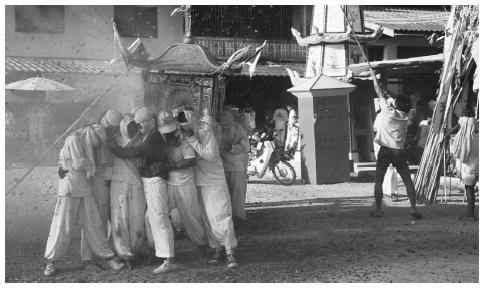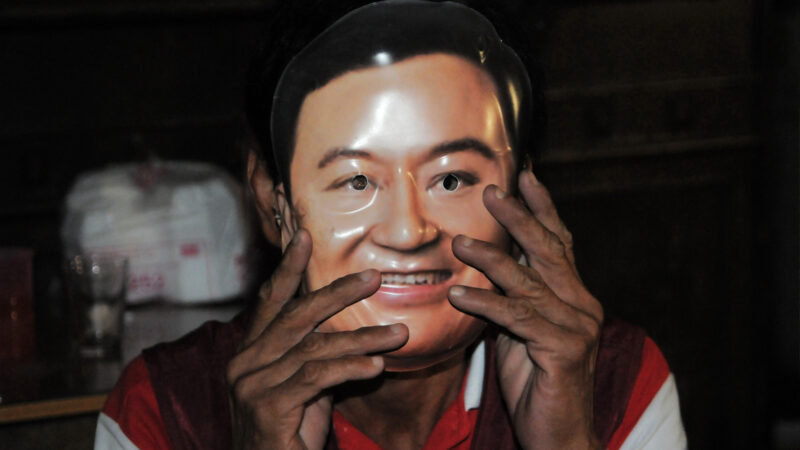In her 1991 book, The Psychology of the Thai People, Suntaree Komin summarises data from two studies of Thai cultural values based on the approach developed by Milton Rokeach and outlined in The Nature of Human Values (1973). This article is a summary of the last chapter of the book which focuses on nine clusters of values and provides a good overview of Thai culture. I will discuss the rest of the book and the concept of “values” in a separate article.
In applying Rokeach’s approach, Suntaree Komin had to adapt and add to the set of values developed by Rokeach in the USA. Rokeach’s approach includes two types of values: instrumental values (the means) and terminal values (the end goals). The value clusters are based on the instrumental value rankings which included additional values found to be relevant to Thai culture: grateful, caring, responsive to situations, calm, contented, independent and mutually helpful.
The data is based on the Thai Value Survey conducted in 1978 with 2,469 participants and a second rural national sample conducted in 1981 with 2,149 participants. Komin identifies nine value clusters based on relative correlations among the values and representing individual values and Thai national character. That is not to say that every person has these characteristics. These are common elements found in the data reflecting shared patterns of behaviour.
Suntaree Komin writes in summary that Thai culture is, “first and foremost a society where individualism and interpersonal relationship are of utmost importance”. The nine value clusters are:
- Ego orientation
- Grateful relationship orientation
- Smooth interpersonal relationship orientation
- Flexibility and adjustment orientation
- Religio-psychical orientation
- Education and competence orientation
- Interdependence orientation
- Fun-pleasure orientation
- Achievement-task orientation
Let’s go through them in turn.
Ego orientation
Some may be surprised that ego orientation is the most important value, described as being independent or being oneself (pen tua khong tua eng in Thai). A better English translation might be the terms “self-esteem” or “face”.
This value was ranked first among all groups in Thailand except farmers. As Suntaree Komin writes, “Thai people have a very big ego, a deep sense of independence, pride and dignity … Despite the cool and calm front, they can be easily provoked to strong emotional reactions, if the “self” or anybody close to the “self” is insulted.”
Although it is often written that Thais do not often express emotion, this is not true when their dignity is provoked, breaking from the normal gentle, passive, smiling attitude. This is the reason that criticism is avoided. If there is a problem to be solved, always consider how to “save face” and preserve dignity, especially in a public forum. Criticism of an idea is often taken as criticism of the person.
Kreng jai is an important concept in this regard, meaning “to be considerate” and “to do whatever you can not to cause discomfort or inconvenience to another person”. Kreng jai applies to all people and relationships, although the degree it is applied depends on differences in status, personal familiarity, and the specific context of the interaction.
Grateful relationship orientation
A number of relationship related values are ranked highly in Thailand, reflecting a need for sincere and mutually appreciated relationships. Although relationships can merely be based on etiquette and transactional interactions, those that reflect deeper psychological bonds are described as bunkhun. Bunkhun is translated by Komin as “indebted goodness” describing when a person provides needed help out of kindness and the remembrance of the kindness and is always ready to return the favour. This kind of relationship reflects gratitude and is arguably a deliberate and considered form of reciprocity.
Smooth interpersonal relationship orientation
Another relationship-based value is that which focuses on polite, pleasant, and conflict-free social interactions, based on humility, politeness, and friendliness (the Thai smile). Suntaree Komin writes that this orientation is related to a number of specific values:
- Caring and considerate
- Kind and helpful
- Responsive to situations and opportunities
- Self-controlled, tolerant, restrained
- Polite and humble
- Calm and cautious
- Contented
- Social relation
Komin speculates that these may reflect some Buddhist influences in Thai culture:
- Jai yen (calm, easy-going, not easily excited)
- Mai pen rai (contented, nothing really matters or arai koa dai)
- Arom dii (ever-smiling, even-tempered, no extreme emotional expression)
Flexibility and adjustment orientation
Although ‘Responsive to situations and opportunities’ is an element of smooth relationships it is also an important value in itself, differentiating Thai and American societies. It is consistently important across different groups of Thai people, and particularly high among government officials. It reflects the need to balance ego and power within a situation and regardless of specific rules and regulations.
Religio-psychical orientation
Thai people value the religious and spiritual life, although this value is lower among Bangkokians, students, and the highly educated. More than 90% of people perceived religion as important in the study.
Education and competence orientation
These values have a medium level of importance, and although education is seen as a way to progress in life, “knowledge for knowledge’s sake” is not valued. That is, education is valued in that it gives higher prestige and salary, but not as an end in itself.
Interdependence orientation
This value reflects the importance of community. Collaboration is particularly valued in the rural communities of Thailand. Neighbours always help each other.
Fun and pleasure orientation
The perception of Thailand from outside is of an easy-going, care-free “Land of smiles”. This is reflected in the importance of sanuk (having fun, enjoy oneself and have a good time). The opposite of this is buua or feeling bored, with nothing to do or repetitive activities.
Achievement-task orientation
This value reflects the need for achievement through hard work. This is not an important value for Thais, although this does not reflect a dislike of hard work. Rather, this may reflect that in Thai context, hard work is not enough to obtain achievement. In American context, achievement means persevering towards a goal in the spirit of an entrepreneur (ranked 2nd or 3rd in American national sample). In Thailand, this value is ranked last and, importantly, is negatively correlated with social relationship values.
In the second article, I will outline the development of this approach in more detail and highlight some of the differences in values seen across different groups in Thai society
REFERENCES
Komin, S. (1991) Psychology of The Thai People: Values and Behavioral Patterns
Rokeach, M. (1973) The Nature of Human Values







More on Thai cultural values (and how they differ across groups) – TapestryWorks
[…] my summary of Thai cultural values, based on Suntraee Komin’s work, I outlined the nine clusters of values that explain much of Thai […]